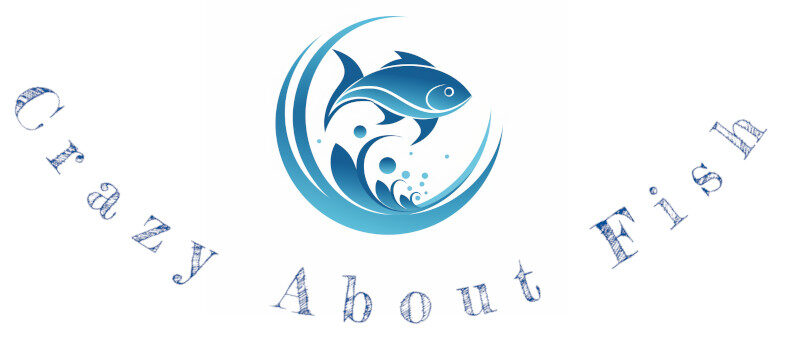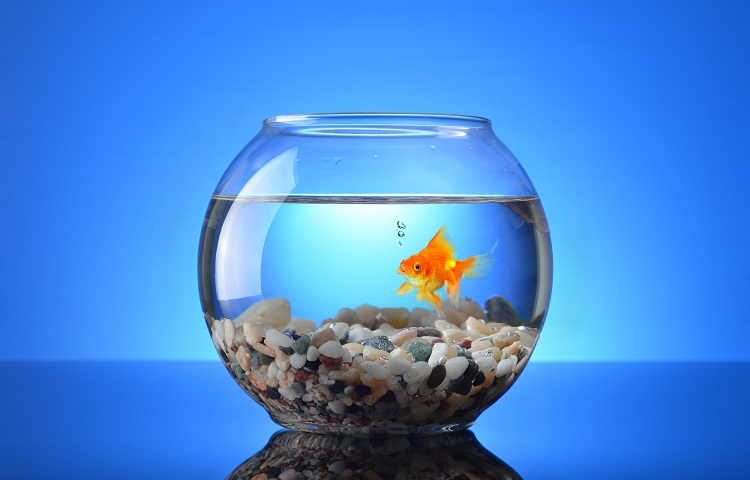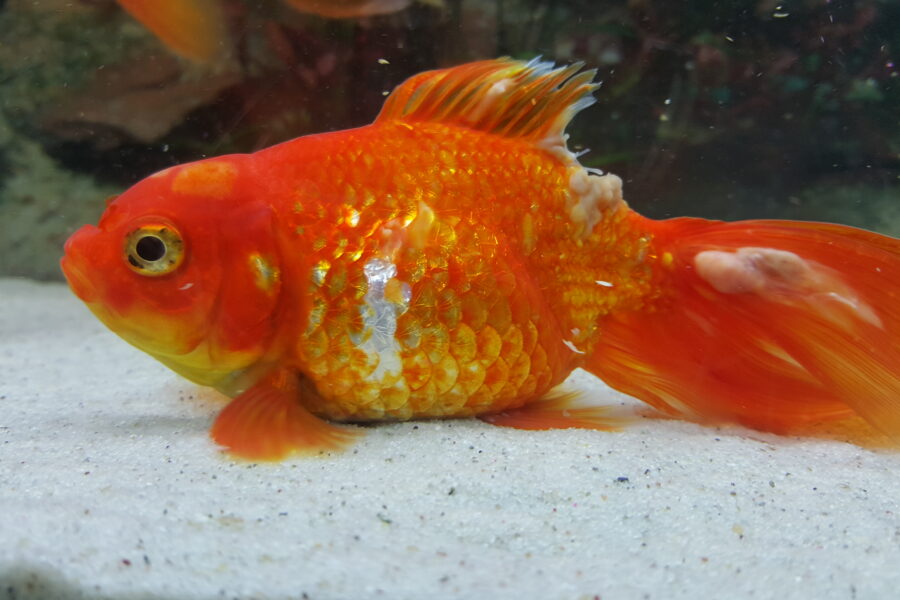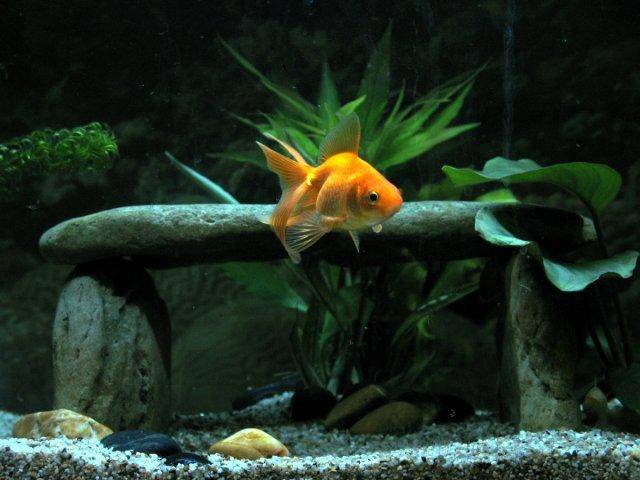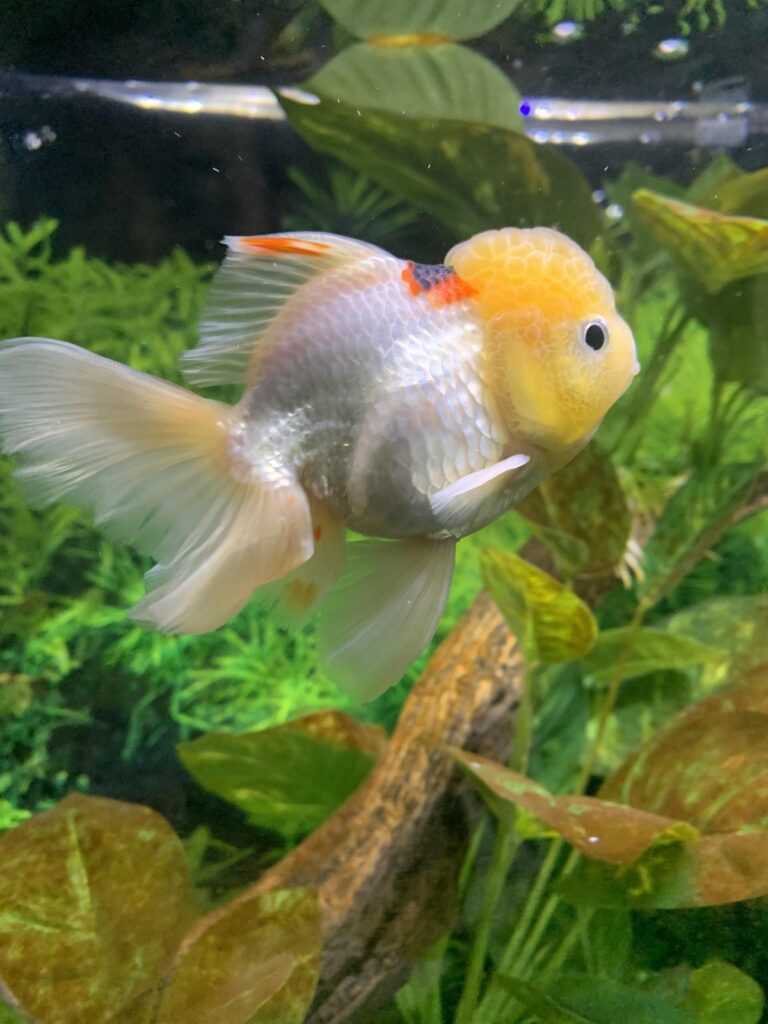
Looking to prevent overfeeding your goldfish and stop turning your tank into a fast-food drive-thru? You’ve swum to the right place! Overfeeding isn’t just a waistline issue for your goldfish, it’s a belly-flop into health problems and a murky tank environment.
Dive into this easy-to-read guide that will help you understand your goldfish’s diet requirements, provide you with super handy tips and tricks to avoid overfeeding, and introduce you to the magical realm of automatic fish feeders. Ready to swim into action?
The Risks of Overfeeding
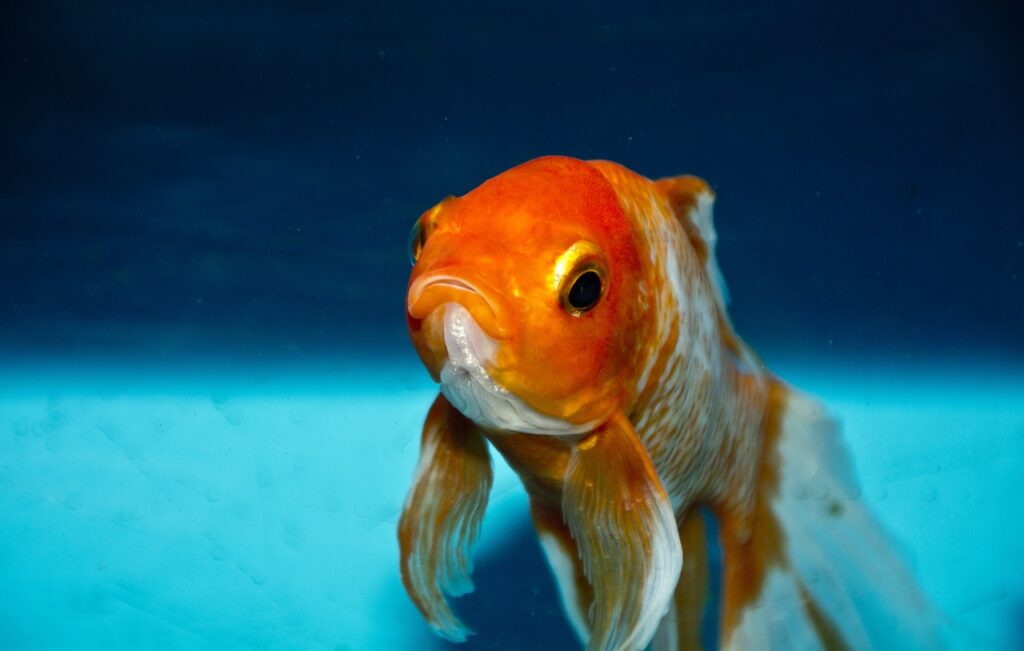
Are you unleashing an avalanche of flakes into your goldfish’s tank on the regular? Well, pump the brakes! Overfeeding can cause more harm than good.
Health Problems Associated with Overfeeding
Overfeeding can lead to a myriad of health problems in your aquatic pets, such as obesity, bloating, or even swim bladder issues. Overeating often results in goldfish accumulating excess fat and unhealthy weight, which can cause significant health problems and reduce their lifespan. The cumulative effects of overeating can also lead to bloating, a condition where the goldfish’s abdomen becomes distended, causing discomfort and potential complications with their digestive system.
In severe cases, overfeeding can trigger issues with the swim bladder, a critical organ that helps the fish maintain its buoyancy in water. This can lead to the fish having difficulty swimming or even floating upside down.
Hence, maintaining a balanced diet for your goldfish and preventing overeating is not only crucial for their overall health but also for their activity level. Overfed goldfish tend to be lethargic and less active. To mitigate this, you might want to learn How to Make Your Goldfish More Active?
Remember, a NOT-so-jolly goldfish is the unfortunate result of overfeeding. Therefore, it’s essential to feed your goldfish in moderation to prevent these health issues and keep them active and happy.
How Overfeeding Negatively Impacts The Tank Environment
We all love a clean and sparkly ambiance, right? Our goldfish buddies do too. Bits of uneaten food become debris, fouling up the water. This causes increased ammonia levels and algae blooms. You wouldn’t want your slimy friend swimming around in its food leftovers!
The Impact on Goldfish Lifespan
Our magical goldfish aren’t swimming about in the fountain of youth. Their lifespan, sadly, can decrease due to overfeeding. So, keeping their meals in check is like giving them the gift of time!
Making sure your goldfish doesn’t evolve into a mini monster requires understanding its dietary needs. Brace yourself as we dive into the nutrition facts of the aquatic world in the next section. You can almost hear a tasteful crunch already, can’t you?
Goldfish Diet Requirements

Goldfish may not have big appetites like us humans after a gym workout, but they still have specific diet needs that we need to be aware of.
Understanding the Stomach Capacity of a Goldfish
Don’t be fooled by your goldfish’s constantly ‘peckish’ expressions. These little buddies have a stomach about the size of their eye. Now, imagine fitting your dinner into something that small! Your goldfish’s stomach can only hold so much, so make sure to feed them in small amounts at a time- no matter how much they “beg.”
Time to dish out magic with the right grub!
Types of Foods and their Nutritional Value
Balancing diversity and quality is key when feeding your goldfish. From flakes and pellets to live foods and tank plants, variety keeps them healthy. But remember, ‘all-you-can-eat’ should be practiced in moderation, and never at the expense of nutritious, high-quality foods. Overfeeding can harm both your goldfish and the water quality in the tank.
Not sure about what’s best for your aquatic pet? Dive into our guide Discover the Best Foods for Your Goldfish for an in-depth look at their dietary needs. Additionally, explore our list of the 5 Best Diet Foods for Your Goldfish to help your goldfish enjoy a balanced diet for a happier, more vibrant life.
How to Estimate the Right Amount of Food for Your Fish
Imagine gobbling up everything you see at a birthday party. The result – an over-stuffed and uncomfortable you, right? Our finned friends can’t afford to do that. The perfect amount of food can be measured as much as the fish can eat in 2 minutes. Any food left over is the uneaten cake on the plate – and we all know throwing away cake is not cool!
Feeding your goldfish is no rocket science, but it does need some finesse and constant care. Armed with tips to charm your goldfish’s belly, let’s move to our next section. Here we’ll discuss different strategies to ace your fish feeding game. Stay tuned to become the best feeder in the fishy world.
Pro Tips and Tricks to Prevent Overfeeding

If you’ve been following along thus far, kudos to you! You’re on the steady path of being the ultimate goldfish parent. But, wait, there’s more! Let’s dive into some pro tips you wish you knew earlier.
Observing Your Fish’s Eating Habits
Like your Great Uncle Roger at Thanksgiving, goldfish can be little gluttons. Observe them during feeding times. How fast do they eat? How much? If your fish zooms through the food quicker than a toddler discovering candy, it might need more. But if there are leftovers, reduce the amount. Do this for a week or two to find the ‘just right’ serving.
Fish are amazing, aren’t they? Cheaper than therapy and less judgemental, too! With those rounded eyes and comical swimming styles, you’re getting to know them better. But, let’s not stop there. It’s time to make a plan.
Creating a Feeding Schedule
A schedule isn’t just for office meetings and PTA events. Goldfish thrive on routine. Consistent feeding helps their metabolism and reduces waste. Try feeding them twice daily, morning and evening. Remember, a feeding size no more than their eyes.
Alright, hang in there! You’re doing great. However, we’re about to discuss something ‘fast-cinating’.
When and How to Fast Your Goldfish
Fasting? Yes, you read that right. Going empty-belly for a day helps them digest better. Consider fasting them once a week. Don’t worry! They won’t send Fish Protective Services after you. They might even reward you with brighter colors and shiny scales.
To sum it up, mastering the art of feeding is a piece of cake (or flakes), right? Just a bit of gill-side manner and paying attention to your finned pals. But, what if I told you, there’s an easier way to handle this? Let’s dive into the world of automatic fish feeders next.
Using Automatic Fish Feeders
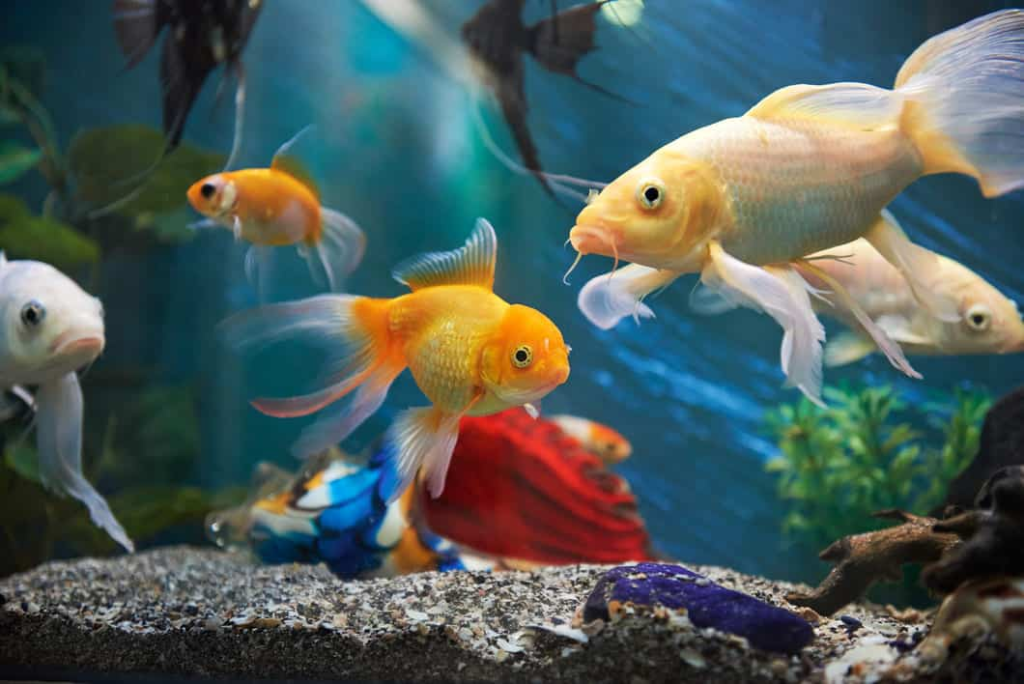
Ever felt like you’re forever chained to the task of feeding your goldfish? Trouble remembering feeding times? Fret no more, because, ta-da, automatic fish feeders to the rescue!
Benefits of Automatic Fish Feeders
Automatize, optimize, then go on vacation! What? Too soon? Seriously though, automatic fish feeders are your ticket to freedom. They offer a host of benefits that can make your life easier and ensure your aquatic friends are well taken care of.
- Consistent Feeding Schedule: Fish thrive on consistency. An automatic fish feeder maintains a steady feeding regimen, ensuring your fish get the right bites at the right time. This is especially helpful when you’re unable to be there at every feeding time, like when you’re at work, away for the weekend, or on a longer vacation.
- Prevents Overfeeding: Overfeeding can lead to various health problems for fish and can dirty the water quickly, potentially leading to a dangerous environment. Automatic fish feeders are designed to dispense the exact amount of food required, thereby preventing overfeeding.
- Ideal for Busy Schedules or Forgetfulness: If you have a hectic lifestyle or tend to forget tasks like feeding the fish, an automatic fish feeder can be a real lifesaver. It will take care of feeding your pets even when you’re caught up with other things.
- Peace of Mind: Knowing that your fish are being fed regularly and correctly can provide great peace of mind. You won’t have to worry about them when you’re away from home or busy with other tasks.
So, with all these benefits, aren’t we all getting riled up about this DIY butler? But, as with everything, it’s essential to choose the right automatic fish feeder for your needs.
If you are particularly interested in automatic feeders for goldfish, check out our guide to the 10 Top Automatic Goldfish Feeders Options. It will help you pick the right one for your goldfish and your specific needs. Happy feeding!
Choosing the Right Automatic Feeder for Your Tank
Like us humans, not all automatic fish feeders are made equal. Some handle flakes and pellets, some cater to a big tank gang, and others are more suited for single finned friends. Look up the feeder’s food capacity, power source, programming abilities, and, very importantly, compatibility with your tank type. Before you choose, it may be worth checking out our guide on the Best Tanks for Automatic Feeders. I mean, it’s worth spending a few extra bucks for a fit if it spares you the horror of finding Nemo floating belly-up, right?
Let’s move on to the set up, shall we?
Setting Up and Troubleshooting Common Issues
Congrats on your newfound feeder! Now, all that stands between you and easy living is a few setup steps. Follow the manufacture’s guide, do a few trial runs, and ensure the portion size and timing match your goldfish’s needs. Be warned, though! These machines can sometimes jam, overfeed, or fail due to power issues. So, maintain regular checks and maybe consider investing in a back-up power source?
To Sum Up
In conclusion, overfeeding poses serious hazards to your goldfish’s health, lifespan, and the overall tank environment. Understanding your goldfish’s dietary needs and appropriate feeding amounts proves vital in avoiding such risks. More so, being observant of your fish’s feeding behaviors and scheduling their meals can provide significant help to this end.
Incorporating automatic fish feeders, carefully selected and properly set up, further assists in maintaining a balanced diet for your pet. When correctly used alongside other sound feeding practices, these devices can ensure your beloved goldfish thrives in its environment, free from the dangers of over-nourishment.
Frequently Asked Questions (FAQ)
Question: Can overfeeding my goldfish lead to health problems?
Answer: Yes, overfeeding can cause various health issues including obesity, constipation and compromised immunity.
Question: How does overfeeding affect the tank environment?
Answer: Excess food can decompose in the tank, leading to poor water quality and toxic conditions.
Question: Does overfeeding affect a goldfish’s lifespan?
Answer: Indeed, the poor water conditions and health issues stemming from overfeeding can shorten your goldfish’s lifespan.
Question: What’s the stomach capacity of a goldfish?
Answer: A goldfish’s stomach is around the size of its eye. Too much food is not only wasteful but could cause health problems.
Question: How often should I feed my goldfish?
Answer: Most experts suggest feeding your goldfish once or twice per day. For more detailed information, you might want to check out this article Goldfish Meals: How Often Should They Be Fed?
Question: Should I fast my goldfish?
Answer: Yes, a weekly fast day can help a goldfish’s digestive system.
Question: What’s the benefits of using an automatic fish feeder?
Answer: Automatic feeders provide pre-portioned feedings and reduce the chance of overfeeding.
Question: What should I consider when choosing an automatic feeder?
Answer: You should consider the feeder’s capacity, reliability, and consistency in dispense size.
Question: What can I do if my fish feeder is not working well?
Answer: Check if the device is clogged or jammed, adjust the feeding portion, or refer to your device’s troubleshooting guide.
